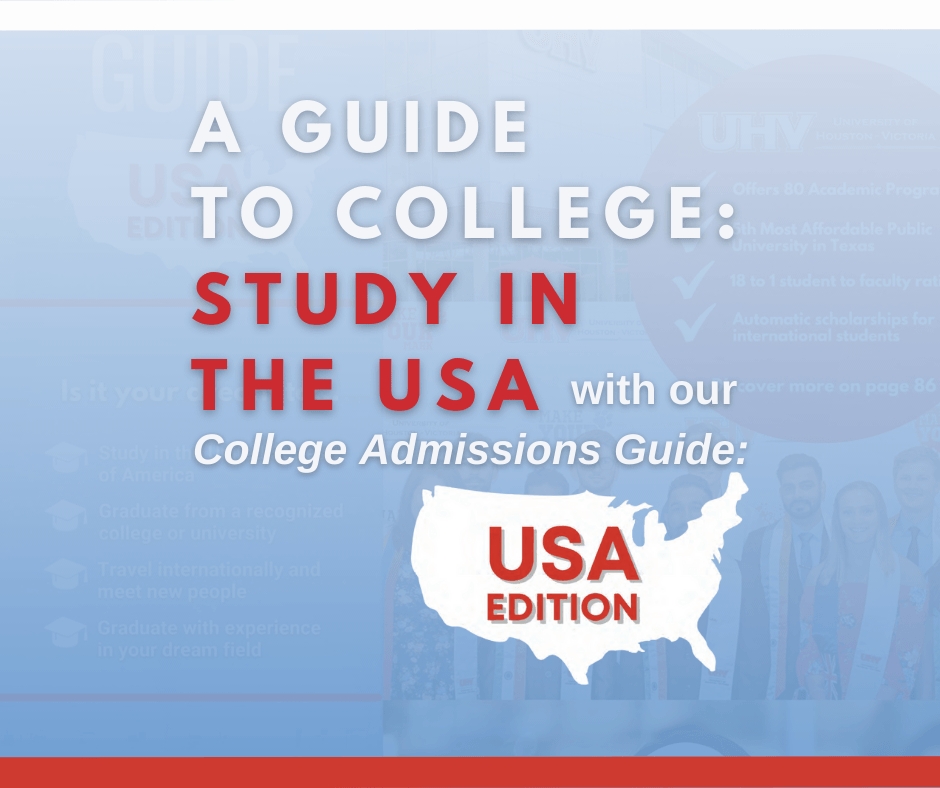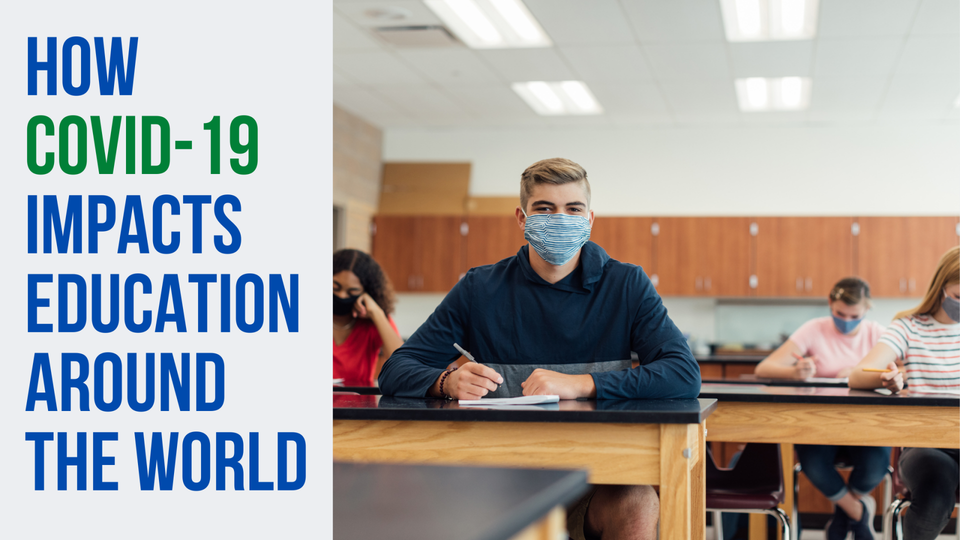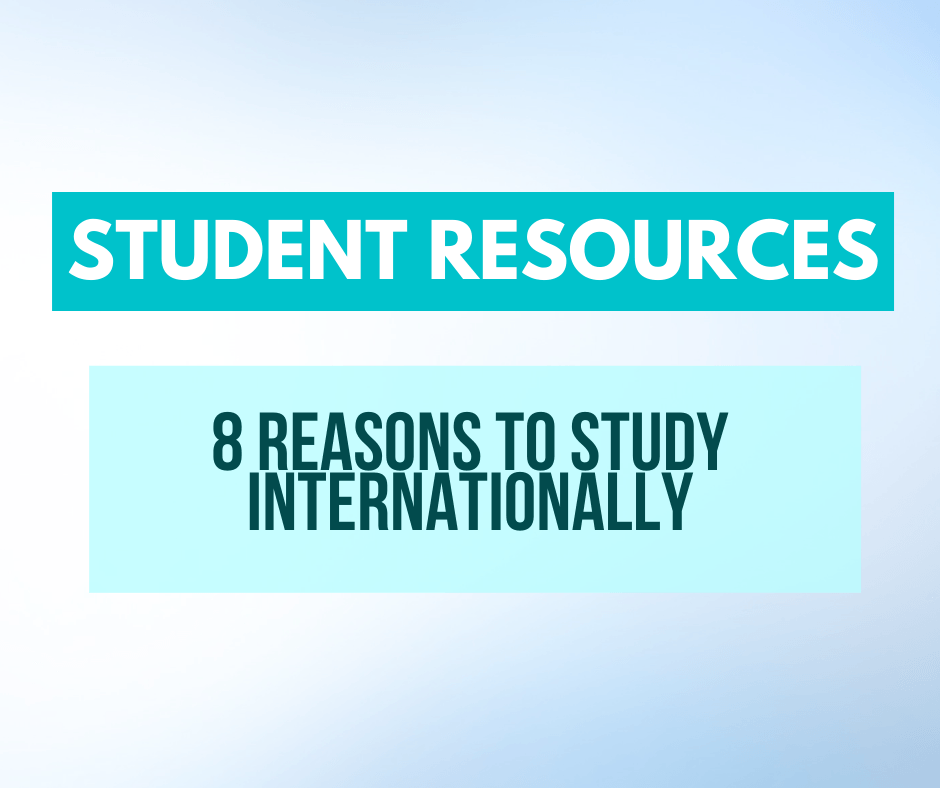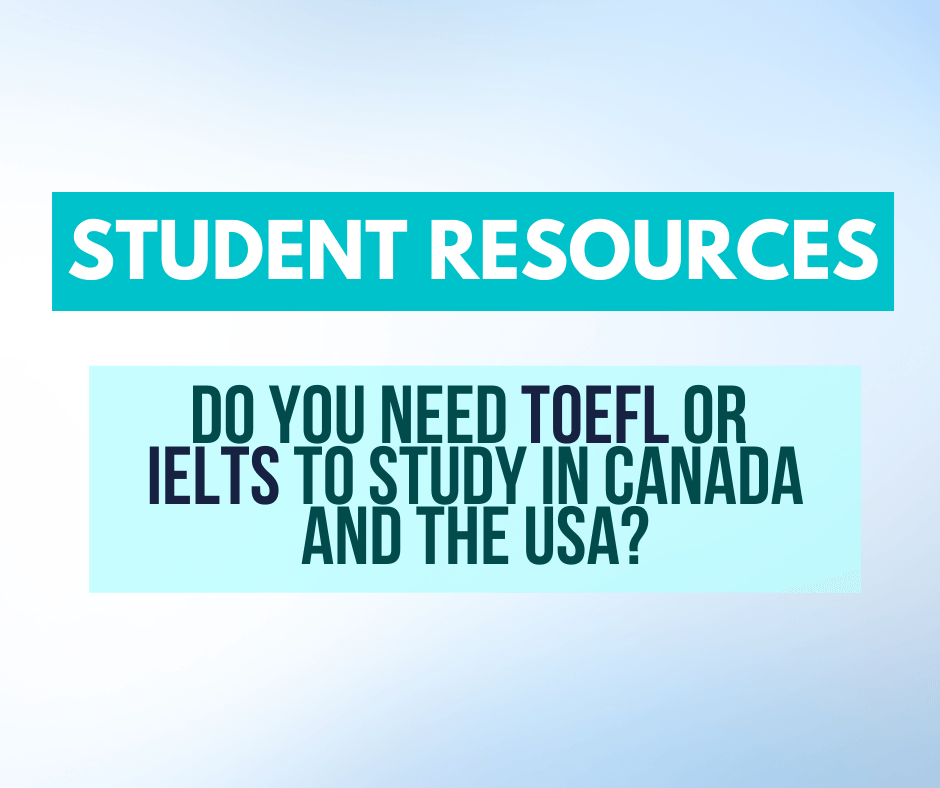How COVID-19 Impacts Education Around the World
All of a sudden in the beginning of 2020, the world turned on its axis because of the global pandemic caused by the COVID-19 virus. Students began to panic in a rush to head home and faculty was sent home to adapt to online learning. Everything happened almost overnight, which caused a lot of panic, worry, and uncertainty due to the public health administers demanding a global emergency. Students, parents, institutions, and faculty have all had to face challenges due to being home, adapting to online learning and teaching, and finding solutions to financial loss. According to research conducted by the United Nations, the COVID-19 pandemic has been the largest disruption to ever occur in the educational system, which has impacted more than 1.5 billion students, in over 185 countries. Not only has there been an impact with how education will move forward, but the school closures that have happened may cause an increase in student debt, heighten tuition costs, extend graduation time, and fracture the dreams of those wishing to study abroad. As frightening as the odds may be in regard to COVID-19 and education, it is important to stay focused on the fact that education is an essential component to our growth; both personally and economically.
Educational Impact
One of the largest concerns that is taking place during the pandemic, is how it is going to affect the educational realm. Most educational advisors never considered the implementation of a pandemic plan into their strategy, so many were not prepared for what would unfold as the year went on. When the pandemic was first announced, travel was restricted, students had to go home, faculty was reduced, and everyone had to begin their online journey. In a study conducted by the United Nations, it surveyed 424 institutions around the world and stated that 67% of institution learning has been replaced by online learning and 24% stated that most learning has been suspended for the time being. It may seem like educational life will never go back to the way it was but that is not the case. A global pandemic is not a permanent situation, as time passes, institutions will create a plan at getting students back into their institutions, safely, to continue their studies. Looking towards the future of higher education, there needs to be a recovery plan set in place, to help students and institutions get back on their feet. Higher education has to implement a plan to secure the moving forward of their student’s education, a faculties livelihood, and an institutions continuation. Within the first five months of the pandemic closure, an institution had to respond to the institution’s community. This meant they had to focus on crisis management in the present time to give students some idea of how studies will be moving forward. Next, is how they are going to recover from the pandemic and figure out how they are going to work around studies for the next year, or longer. Institutions need to create an innovative recovery strategy that will help students accommodate to their new normal, which could mean sending out different surveys for students to complete to see how they are adapting. Lastly, is now that a year or more has passed, institutions need to get back to thriving and bringing students back into their classrooms, safely. This gives colleges and universities the opportunity to meet goals now that time has passed. Higher education will now be defined by how each institution handled a crisis, which will ultimately make them stronger and more adapting to changes in the future.
Student Learning
The COVID-19 pandemic has caused a large disruption in education, but also for every individual who makes education and institutions function. Students have had to adapt to the changes that are being made, which honestly means these individuals are most likely overwhelmed and trying to adapt to these dramatic changes. While schools all over the world may be opening, or deciding to stay virtual, there are consequences having to be endured to improve the future of education. With the pause on those who planned on travelling abroad for studies, students now have had to adapt to online learning from an institution somewhere around the globe. This can become difficult for those who are unable to financially sustain pieces of technology required like laptops or internet. Whereas there are other students who may be enrolled from countries who lack the sustainability for certain technology, like high-speed internet. When it comes to international education, there is no doubt that students are sitting and scratching their chins trying to decide how to move forward. There have been shifts in international education policies, which have put restrictions on students who are still trying to study abroad. Although restrictions have a large impact on students, it does not mean that they have to give up on trying to study internationally and settle for an institution nearby. Although virtual is not the same as getting onto a plane and moving somewhere new; you can still opt for courses at international institutions which will eventually open and have you packing your bags!
Mental Health Impact
The pandemic itself is already a stressful situation; however, add individuals who are studying full-time, while having to pay their education to the mix, and stresses heighten. In the past, mental health issues were shielded with insignificance due to their taboo reputation. However, as time has begun to advance and become more accepting, mental health issues are brought to light for individuals to accept who they are, rather than hide in the dark. It is understandable to consider that students may be struggling mentally with the adaption to online learning during a global pandemic. A student’s mental health can impact their motivation, focus, and social interactions which ends up being crucial factors in whether or not a student does well in school. On top of their educational focuses, students may also have stressors related to fear or worry over oneself or loved one’s due to quarantine and sudden lifestyle changes. Stresses begin to pile up for students, and their future, which ultimately impacts their mental health. Institutions and governments need to work together to ensure that students come out of this pandemic in the best condition possible. There needs to be more resources available to students from home, to ensure that they can have a successful educational career. Students are the number one priority when it comes to education because they are the ones who make the realm thrive.
The outbreak of this virus has caused a noxious impact on the way education will move forward. Although none of us saw this coronavirus crisis happening, from this point forward, it will be a learning curve for the educational realm. Institutions will know how to handle a pandemic to benefit its students, as well as ensuring that education still moves forward, even if done remotely. Business models will be changed, as will curriculums, to shift the way learning is done
United Nations, Policy Brief: Education During COVID-19 and Beyond, August 2020.




